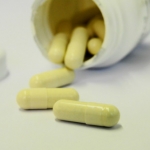While about 80% of peri- and postmenopausal women have vasomotor symptoms (VMS), such as night sweats and hot flashes, it has been observed that higher body mass index (BMI) and body fat are associated with an increased risk of vasomotor symptoms. Thus, it is reasonable to speculate that weight loss may prevent VMS.
In a recent study, researchers analyzed data from 1,546 participants in the Study of Women’s Health Across the Nation (SWAN). In this population, they found that women in early menopause who have a higher BMI and waist circumference were more likely to report VMS and to have more frequent VMS. In contrast, for women in late menopause, higher BMI and waist circumference were associated with fewer VMS. Furthermore, they observed that weight loss did not result in a reduction in VMS.
These findings differ from those reported from the dietary intervention trial of the Women’s Health Initiative (WHI), where it was observed that in postmenopausal women, VMS were reduced or “eliminated” by losing 10 or more pounds or 10% or more of their body weight in one year. The Australian Longitudinal Study on Women’s Health (ALSWH) found that VMS were reported more commonly by women who had gained weight but were not significantly less frequent in those who lost weight.
So while most studies demonstrate that gaining weight increases the incidence and frequency of VMS, it looks as if losing weight may not help in terms of VMS. Although losing weight may clearly have other health benefits, the authors emphasize the importance of maintaining a healthy weight in midlife women early in the menopausal transition as a means of preventing VMS.
Ruta Nonacs, MD PhD
Gold EB, Crawford SL, Shelton JF, et al. Longitudinal Analysis of Changes in Weight and Waist Circumference in Relation to Incident Vasomotor Symptoms: the Study of Women’s Health Across the Nation (SWAN). Menopause. 2017 Jan;24(1):9-26. doi: 10.1097/GME.0000000000000723.
Herber-Gast G, Mishra GD, van der Schouw YT, Brown WJ, Dobson AJ. Risk factors for night sweats and hot flushes in midlife: results from a prospective cohort stud. Menopause. 2013 Sept; 20(9): 953-959.
Kroenke CH, Caan BJ, Stefanick ML, et al. Effects of a dietary intervention and weight change on vasomotor symptoms in the Women’s Health Initiative. Menopause 2012; 19:980–988.








Leave A Comment